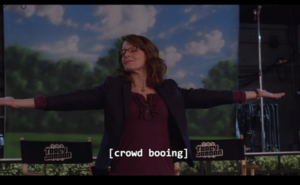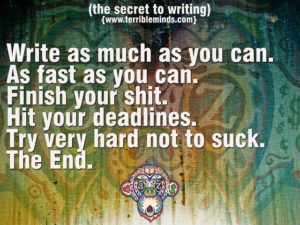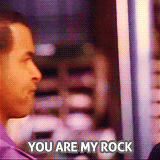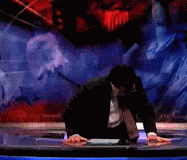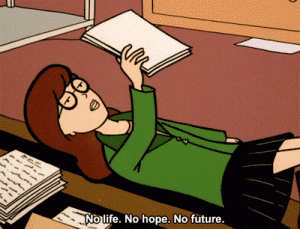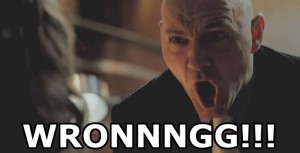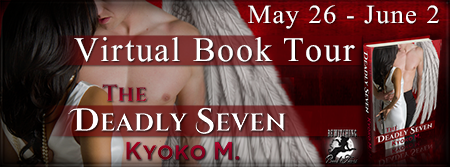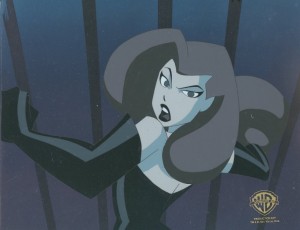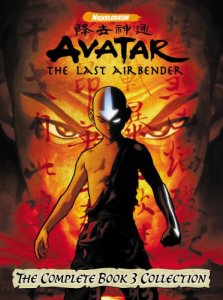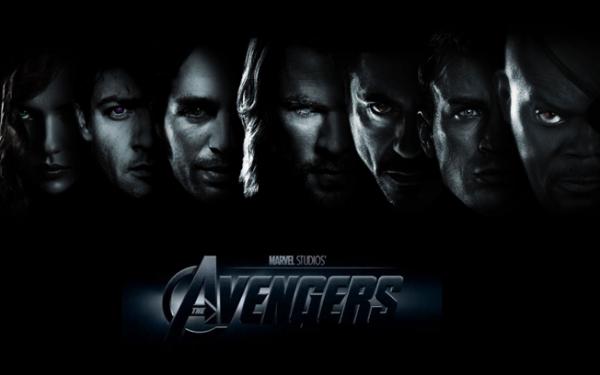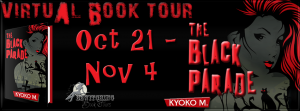Holy crap, guys, it’s been three years since I published The Black Parade.
“What it’s like being a self-published author?”
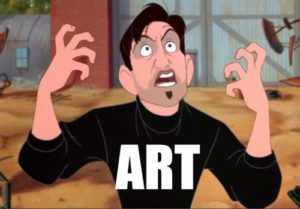
Yeah. Dean’s got the right idea. I think if I could sum up the experiences I’ve had over the past year, since the last post, it’d be with the above image.
If you know any writers, personally or just through social media, most of us tell you the same thing if you ask us that question. Guys…being an author is hard. Like, really. I know it’s not as hard as being a heart surgeon or an astronaut, but people underestimate the fact that it’s literally–and I mean that, not in the overused Sterling Archer sort of way–hundreds of hours of our lives spent pouring our heart and soul into a book and then sending it out into the world, praying that it’s not a tiny garbage fire to be extinguished by the masses.
I suppose the funniest thing about being a self-pub author in my third year is that it simultaneously got easier and harder after I hit year three. That sounds nonsensical, but it’s kind of true.
For instance, the part that got easier is knowing where to search for help. Need advice about where to advertise? KBoards. Need help with research? Google yourself to death and then call someone who is smarter than you and ask them weird questions (in this case, I called an MIT post doc to grill her about her research project. It was as bizarre as it sounds, but she was more than willing to help and super sweet about it.) Need to find art for your upcoming cover? Stock photos. Need advice on how to not be a total piece of crap writer? Chuck Wendig. After three years, I have so many bookmarks saved to point me in the right direction when I get stuck.
On the other hand, the part that got harder is venturing out to try something new. I finished the Black Parade series (for now; there will be other additions to the canon next year, if things go well) and it took every bit of my will power to get it done and make sure it was the right way to end my debut series. It was by far the hardest thing I ever learned to do on my own.
Until this new novel came along.
Truth be told, Of Cinder and Bone is kicking my ass. Thoroughly. If any of you follow me on Twitter, you know I’ve been gnashing my teeth over it for months now, even though I started out super eager to begin a whole new series. Working on it is like pulling teeth. It’s exhausting and scary and awful and I’ve been faced with constant self-doubt as I am venturing into a totally different genre this time, away from my comfort zone of angels and demons and sarcastic loners with trust issues. Science fiction is a whole new animal, and it’s honestly trying to maul me.
But that’s probably a good thing. All writers need to evolve. Some of us can find our niche and stay there, but often authors are called away from their comfy spot to try something new because we bleed words and the words always dictate our actions. The story is bursting out of our chest like a horrible scene from Alien and no matter how much it hurts, we have to obey it.
To that end, here are a few things I’ve learned over the past year.
-To quote a catchy little song from the wonderful Zootopia, try everything. It might be cheesy and sung by an artist I honestly can’t stand, but the song really does ring true with what you should do as an author, especially a newbie. “I won’t give up, no, I won’t give in ’til I reach the end and then I’ll start again; No, I won’t leave, I wanna try everything, I wanna try even though I could fail.” Do that. Is something terrifying and you don’t want to fail at it? Try it anyway. Do your best and push through the failure, because you will fail at things, but that doesn’t mean you shouldn’t still give up on potential opportunities for growth. Do things that scare you. Do things that you would’ve sworn a year ago that you’d never be able to do, and then bask in the glow of being brave enough to try it, regardless of how it turns out. People give up on their dreams a lot in life, and you have to plant your feet and do your best if you want to be an author and share your stories with the world.
–Explore not only your own genre that you write in, but those that are similar, because you can stumble across diamonds in the rough, both the books themselves and the authors. When I was preparing for my panel at Geek Girl Con, I took recommendations for books with people of color in SFF, and I actually found one I really dig even though it’s in a genre I don’t usually read often. I actually love sci-fi and I have since I was a kid, but I’m a very visual person. I tend to like sci-fi shows and movies instead of novels, but I found Earthrise by M.C.A Hogarth and I really enjoyed the hell out of her series. Then I bumped into her on Twitter and I’ve never been happier chatting with her on occasion because she’s hilarious and interesting. It’s hard to find time to read when you’re an author, but it can be very rewarding to branch out and mingle with others who have similar tastes and mindsets. You can even eventually build friendships or mutually beneficial arrangements as a result.
–Allow yourself to be terrible. So I hit a low point about a week ago when I was about 89,000+ words into Of Cinder and Bone. I couldn’t finish Chapter 14 because I felt all this crushing self-doubt and my inner perfectionist was so convinced that my book was the worst thing ever committed to the pages and no one’s going to like it because it’s so atypical of the genre and I froze up every time I opened my Word document to write more. I started looking for a pep talk and of course found this fantastic article by the legendary Chuck Wendig that got me out of my rut.
Writing sucks. It’s the worst. It’s basically you sticking a huge needle into your chest and pumping your blood out onto endless pieces of paper. You’re exposing yourself, and not in a gross way. When you write, you’re putting yourself out there, and so every single author (no matter what they tell you) gets scared and thinks they’re going to be utterly rejected and thinks about quitting. I think I read that Neil freaking Gaiman did that with one of his most beloved books; he tried to 86 the whole thing because he was sure it wasn’t going to work, but then he got a big reality check from the experience and pushed through it. It’s incredibly harrowing to finish the writing process because it’s totally possible that your first draft is crap. However, another great quote I read once is that you can edit a bad story to be better, but you can’t edit a blank page. Allow yourself to write poorly at first. Just get the words down and then worry about making it better after it’s done. It’s easier said than done, but you still have to do it. Don’t give up if you really truly care about your book and know that it’s the story you’re dying to tell. You can always fix a broken story, but you have to finish it before you can save it.
Or, as Chuck Wendig puts it:
–Meet people. This sounds like a no-brainer, but a lot of authors are introverts like I am. A couple years ago, I’d have laughed snottily if you told me I’d be a panelist at a couple different conventions and that I’d cosplay as Lana Kane from Archer in full view of the nerd population. I’d have called you delusional. But I did that. I was on a few different panels where I was able to meet some incredibly talented people, and I’m really glad I did it. It’s not just for exposure, either. Nothing renews the fire in my soul than meeting other authors and sharing experiences in this crazy thing we call a career. You can pull yourself out of a rut by mingling with people from all walks of life and just talking to them about anything. You’ll often find something in common even if it seems like you’re total opposites. Whenever possible, get out of your own way and be with other people who are enjoyable to be around. You never know what can come from it. Life is often full of bad surprises, so that’s why it’s great when a good one comes along.
–Share your experiences, even if you feel like you have nothing to offer and no one cares. I’m guilty of this flaw a lot. I feel like I don’t know anything at all. I’m just a tiny awkward turtleduck floating on the pond. I feel like I shouldn’t give anyone advice because I’m floundering around and don’t know what the hell I’m doing. But here’s the big secret: all writers are like that. You could flag down Stephen King right now and turn the mic off and he’d probably be like, “Dude, I don’t know what the hell I’m doing. I’m just as clueless as you are.” All writers think we’re phonies, even super acclaimed bad asses like Stephen King or Neil Gaiman or Toni Morrison. We feel unqualified to teach people things, but you never know that the seemingly pointless anecdote can spark something in someone that helps them on their journey. It’s why I always keep my Inbox open to new authors. If you ever have a question, I will try my damnedest to answer it for you, and I try to tell people the best advice I can when they ask for help. Hell, that’s the only reason I write these yearly blog posts about my experiences. If even one droplet of advice is helpful, then my purpose on this planet has been fulfilled.
–Dumb luck has a lot more to do with this career than you think. I hate saying this, but it’s true. No matter how many books you read about how to be the best author and the best book marketer, no matter how hard you work to make your book look like the best thing since sliced bread and Nutella, sometimes it all boils down to luck. There is no set way to make your book a bestseller. At all. It’s the same as how sometimes Hollywood pours millions of dollars into a project and it bombs, even though they had one of those “surefire” formulas to make a hit. Sometimes it’s just zippity-doo-da dumbass random luck. You could have a runaway hit or your book can sink to the bottom of the slush pile right out of the gate, and it’s no fault of your own. That’s where the “Try Everything” lyrics really become important. Luck won’t always be on your side. That’s unfair as hell, but one of the biggest obstacles for every last author is getting back up after a juicy, painful faceplant into the asphalt. Sometimes the stars align and everything goes perfectly, and sometimes the clouds part and it’s Jesus taking a piss right on your head. Them’s the breaks, man.
…sorry about that last mental image there, my duckies.
For all the good times and the bad times, I’ve definitely learned a ton over these three years as a published author. I hope most of all that I’ve at least been entertaining as I flail around searching for the way to go. I’ve got a lot of adventures ahead of me, and I can only hope you guys still want to come along for the ride. Thank you for sticking around, readers.
To that end, don’t forget that in celebration of my third year anniversary, The Holy Dark (Book #4) will be FREE to download via Amazon Friday, July 22, 2016 and Saturday, July 23, 2016. Spread the word.
See you next time, true believers.
